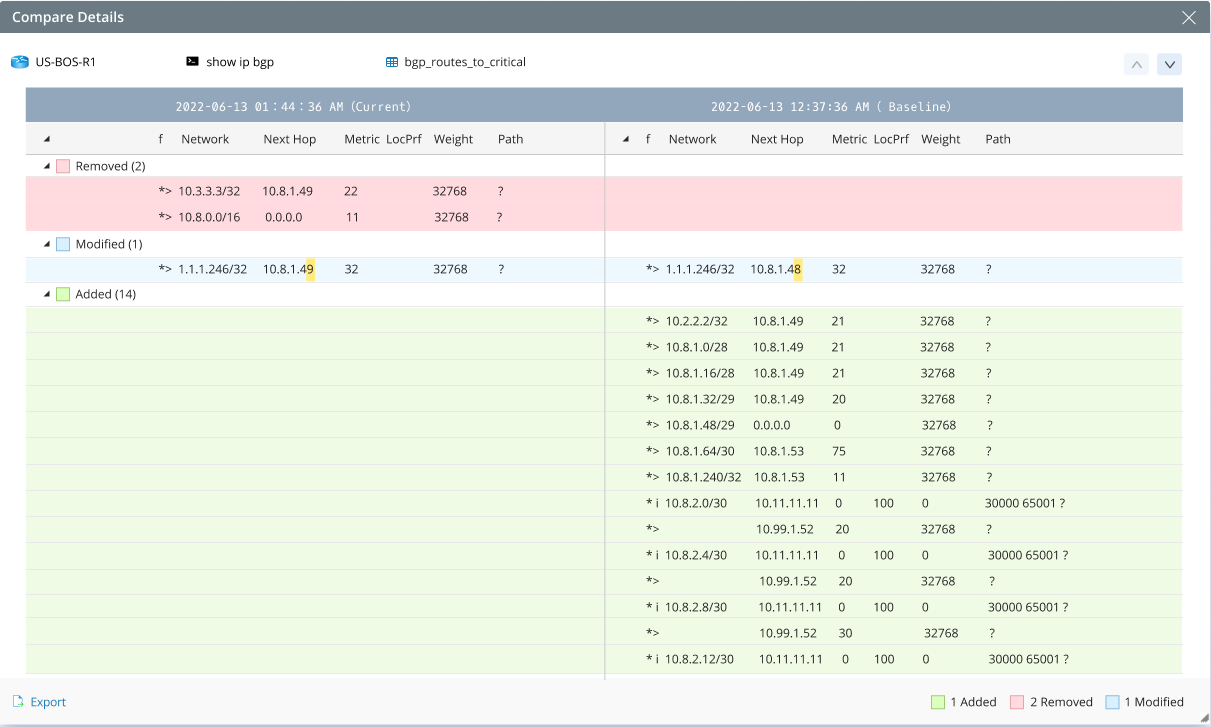R11.0a-March2023
Define Whole Table-based Diagnosis
The Whole Table-based Diagnosis can be used in the following two scenarios:
- Compare the current table with its last value to detect changes.
- Compare the current table with its baseline value to detect changes.
- In the diagnosis, select a table to define the condition to achieve the whole table-based diagnosis when the Loop Table Rows option is not enabled:

- Select one of the four supported operators by the table object: Equals, Does not equal, Is empty, and Is not empty.

When you select Equals or Does not equal as an operator, you can only select the same table on both sides of the operator, and then choose different sources.
- You can enable output table-compare summary message (to diagnosis note and device status code). Set the changed detail message to be outputted in the Advanced Settings.


Note: The Output table-compare summary message option is only available for whole table-based diagnosis, and if you do not set the table key for the table object, a dialog will pop up to remind you when saving the NI.
- In the NI View mode, click the view table-compare summary message in the Diagnosis Details and Compare pane to view the Table-compare field and click the hyperlink in this field to view the comparison result.



Note: This hyperlink will not be displayed if the table’s last or current value is null.